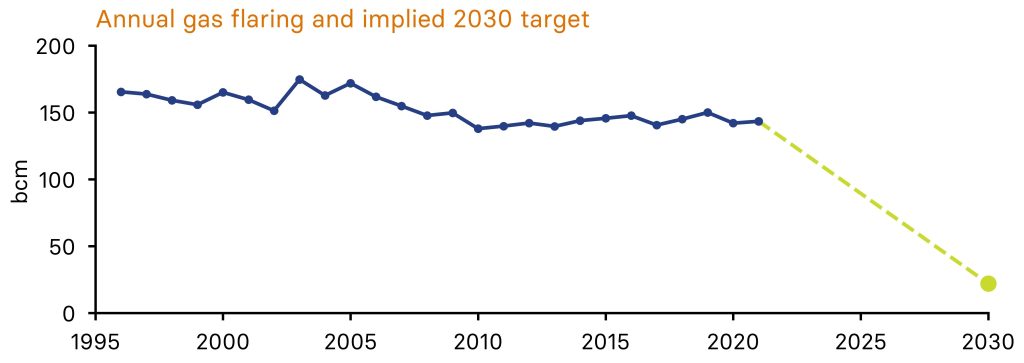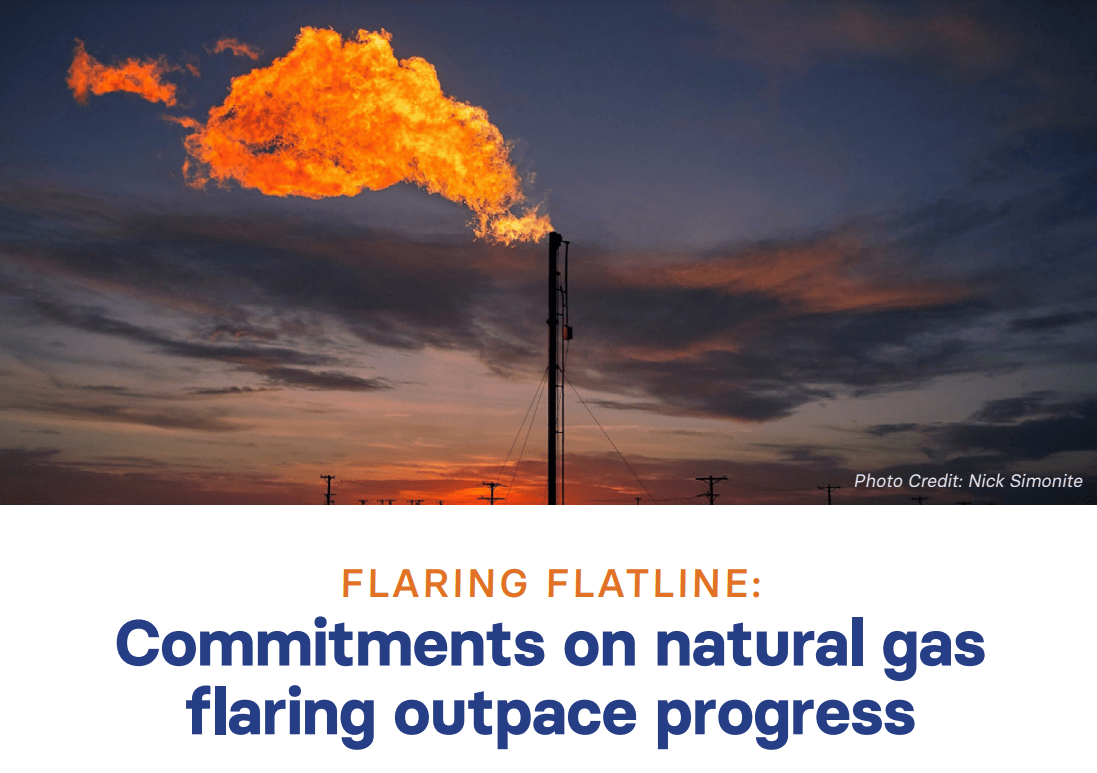Flaring Flatline: Commitments on Natural Gas Flaring Outpace Progress
Flaring Flatline: Commitments on Natural Gas Flaring Outpace Progress
Photo credit: Nick Simonite
Flaring Flatline
The oil & gas industry is failing to use a key lever to reduce climate-warming emissions from flaring, the wasteful and climate-polluting practice of burning natural gas that is associated with oil production. The past decade has seen a steady increase in attention to the issue and growing momentum to end routine flaring by the end of this decade. However, updated figures from the World Bank’s Global Gas Flaring Tracker indicate surprisingly little progress in reducing the practice.
- Despite widespread commitments to reduce natural gas flaring, 2021 saw a net increase in flaring emissions.
- Significant flaring reduction in the US (-25%) and Algeria (-13%) was more than offset by flaring increases in Iran (+31%) and Mexico (+14%).
- The 8 large oil companies that have reported 2021 flaring volumes also saw mixed progress. Declines from Equinor (-41%), Total (-14%) and Repsol (-14%) were offset by gains from Eni (+21%), Shell (+18%) and bp (+16%). However a few companies did increase their commitments on flaring including Shell, ExxonMobil and Hess.
Commitments Rising
Many oil producers have publicly committed to end routine flaring. Since it’s founding in 2015, membership in the World Bank’s Zero Routine Flaring by 2030 initiative has grown steadily. As of May 2022, 34 governments and 53 oil companies had endorsed a target of eliminating routine flaring by the end of this decade.
However in 2021, natural gas flaring was up slightly on the previous year and essentially unchanged over the past decade.
Future of Flaring
The latest data shows that achieving zero routine flaring industry-wide in 2030 is increasingly implausible: flaring volumes would need to decline by 19% per year through 2030 to achieve zero routine flaring from all global oil production.


